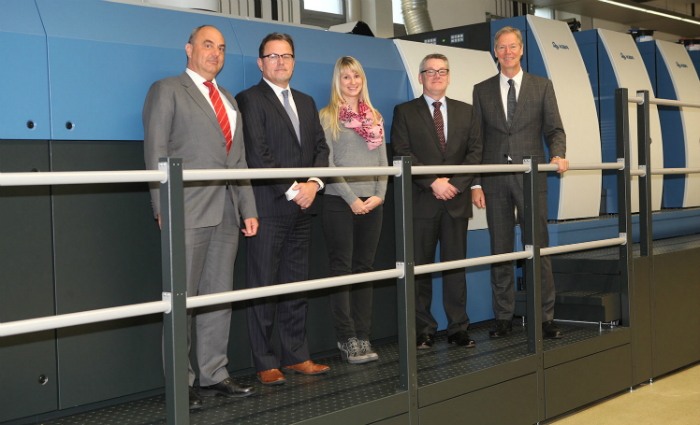KBA-Sheetfed and Flint Group Sheetfed have signed a strategic partnership for the worldwide use of Flint Group’s conventional sheetfed ink series on KBA Rapida presses.
Dirk Winkler, head of print technology at KBA-Sheetfed, says, “We have achieved excellent and stable results with printing inks from Flint Group, not only in connection with our ‘conventional ink’ benchmarking, but also during periodic high-performance tests in the areas of packaging, commercial and Web2Print applications or label printing. And when a product meets our high expectations, we gladly recommend it to our users around the world. This strategy is naturally implemented together with our cooperation partner to the benefit of our customers.”
The companies’ global cooperation includes use of the inks for print demonstrations in the customer centre, during training in the company training centre, in the design and development departments, at trade shows and customer events, and for the factory testing of new presses, as well as the inclusion of Flint Group inks in press starter kits and continuous product development. In addition, experts from the two sides will exchange know-how within the framework of joint training measures.
KBA-Sheetfed recommends the use of different Flint Group ink series for different applications, for example for straight printing (Novavit F700 on mineral oil basis or Novavit F950 on vegetable oil basis), perfecting (F950), general packaging printing (Novavit F1000 WIN Bio), food packaging (Novasens P660 PREMIUM) and a number of special applications such as printing on non-absorbent substrates or fast work-and-turn.
KBA says it subjects all inks to constant testing and, where necessary, the company modifies the inks specifically to suit Rapida presses. It claims the inks help produce print with constantly high and reproducible print quality raising process standardisation to a new level. Other benefits the company claims include reduced ink consumption, high colour brilliance and contrast, smooth reproduction, convenient handling and the reliable printing of solids. KBA also sees cooperation to develop and standardise new ink systems and joint support for users, such as in the food packaging sector.
Flint Group inks deal with KBA


